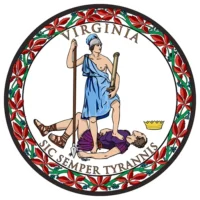Back in January, Melissa and I visited South America and Antarctica. It was an amazing once-in-a-lifetime trip centered around a fourteen-day cruise on the Norwegian Star. This post includes a lot of photos . . . including more penguins than you probably ever wanted to see.
There was a pretty big “snafu” right at the start of the trip. We were booked on Delta Airlines from Washington Dulles International Airport in northern Virginia to Ministro Pistarini (Ezeiza) International Airport in Buenos Aires, Argentina, with a connection at Hartsfield-Jackson Atlanta International Airport in Georgia. We made it to Atlanta just fine, then Delta canceled the flight to Argentina.
Delta scheduled an impossible flight—the plane was scheduled by the airline to depart Las Vegas for Atlanta about an hour before it was scheduled to leave Atlanta for Buenos Aires. That was never going to happen. There were no alternatives available to get us to Buenos Aires before the ship departed . . . so we missed it.
The first three days of the cruise were at-sea days and the next port was Ushuaia, Argentina, at the southern end of South America. So the “catch-up” plan had us spend the night in Atlanta, fly to Buenos Aires for a night, then take a domestic Aerolíneas Argentinas flight from Aeroparque Jorge Newbery in Buenos Aires to Ushuaia-Malvinas Argentinas International Airport in Ushuaia to meet the ship a couple days later.
In the end, it all worked out. We got to spend more time in both Buenos Aires and Ushuaia than originally planned and only missed a few at-sea days. Once we were on the ship we traveled as-planned to Antarctic waters; the Falkland Islands; Puerto Madryn, Argentina; and Montevideo, Uruguay; then back to Buenos Aires for the flight home, this time connecting through Benito Juárez International Airport in Mexico City, Mexico.
Between our travel insurance and Norwegian’s guarantees (since we booked airfare through them), we didn’t lose any money in the end either. We might even have saved a little bit once you combine the initial costs, the unexpected costs, and the later reimbursements.
Read more . . .



